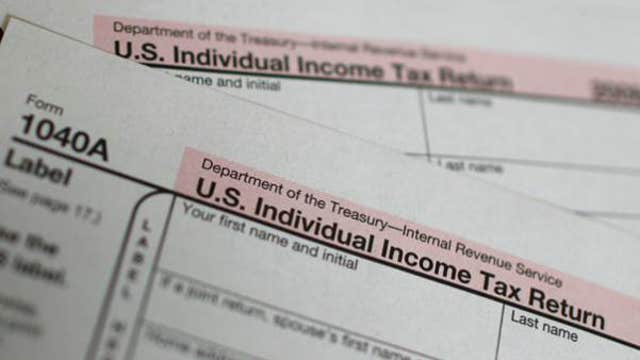Tax season: Top tips for 2018
Tax season is rapidly approaching and both taxpayers and financial advisors are still getting acquainted with all the finer details of the GOP’s new legislation.
This year, tax filing season extends from Jan. 29 until April 17.
With the sweeping changes enacted to the nation’s tax code beginning in January, taxpayers should not continue to file their taxes “as usual.” As previously reported by FOX Business, using the approaches that worked under the old system will not yield optimal results under the new one.
If you’re looking for ways to maximize benefits under the new law, here are some deductions to keep an eye on this year:
Mortgage refinancing
Thinking about refinancing your mortgage in 2018? You may want to think twice. According to online tax filing and advisory solutions company Visor, refinancing this year could put taxpayers at a loss of more than $3,000.
“No longer is the decision to refinance only based on interest rates and monthly payments,” Visor said. “Any mortgage originating after Dec. 31, 2017 will be subject to the new home acquisition indebtedness rules.”
The previous tax code allowed homeowners to deduct mortgage interest on up to $1.1 million of debt, but the current law limits that to the first $750,000 worth of debt.
“Assuming a 3.5% mortgage interest rate and 30% effective tax rate that’s a tax loss of $3,100 per year,” experts at Visor concluded.
AMT and stock options
Exemptions for the Alternative Minimum Tax (AMT) increased to $109,400 for married couples filing jointly and $70,300 for individuals under the new legislation, while the phaseouts have risen to $1 million and $500,000 for each group, respectively.
With fewer people presumably subjected to the tax under the new exemption thresholds, there are some new options available to those taxpayers.
Employers sometimes offer Incentive Stock Options (ISO) to employees, allowing employees to purchase shares at an established price. This transaction usually requires taxpayers to make an AMT adjustment at the end of the year.
“Since exercising stock options often triggers the Alternative Minimum Tax, more people will be able to exercise their incentive stock options without incurring a tax cost,” tax experts from Visor said.
Charitable deductions
Under the new tax bill, deductions can be made by an individual taxpayer to public charities of up to 60% of income, an increase of 10 percentage points over the previous allowance. This change can provide an opportunity for some taxpayers to save a significant amount of extra cash this year.
“Charitably-inclined taxpayers with an [adjusted gross income] of $500k and an effective tax rate of 30% could deduct an additional $50k of contributions for an estimated tax savings of $15k,” Visor said.
However, as previously reported by FOX Business, some charitable donations will no longer be deductible, including college donations made in exchange for season tickets.
Retirement
Investors also may want to reconsider allocations for their retirement savings plan under the new plan, according to Visor.
The contribution limit for 401(k) plans was increased to $18,500, from $18,000. Contribution limits for Roth IRA and IRA accounts remains unchanged at $5,500 and $6,500 for those ages 50 and over.




















